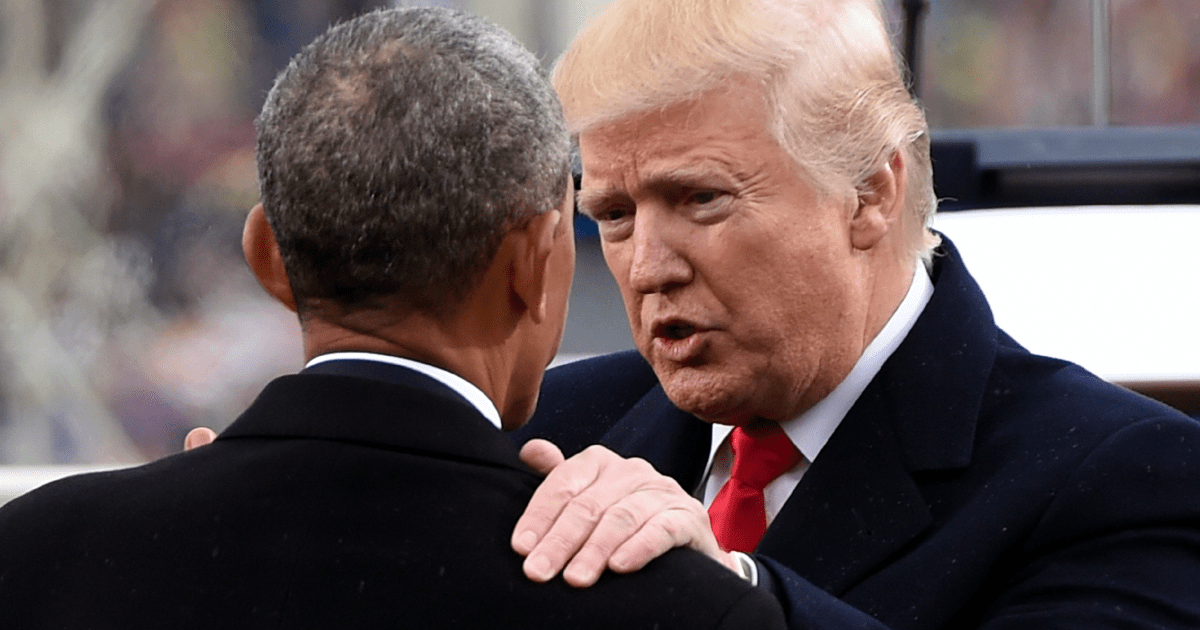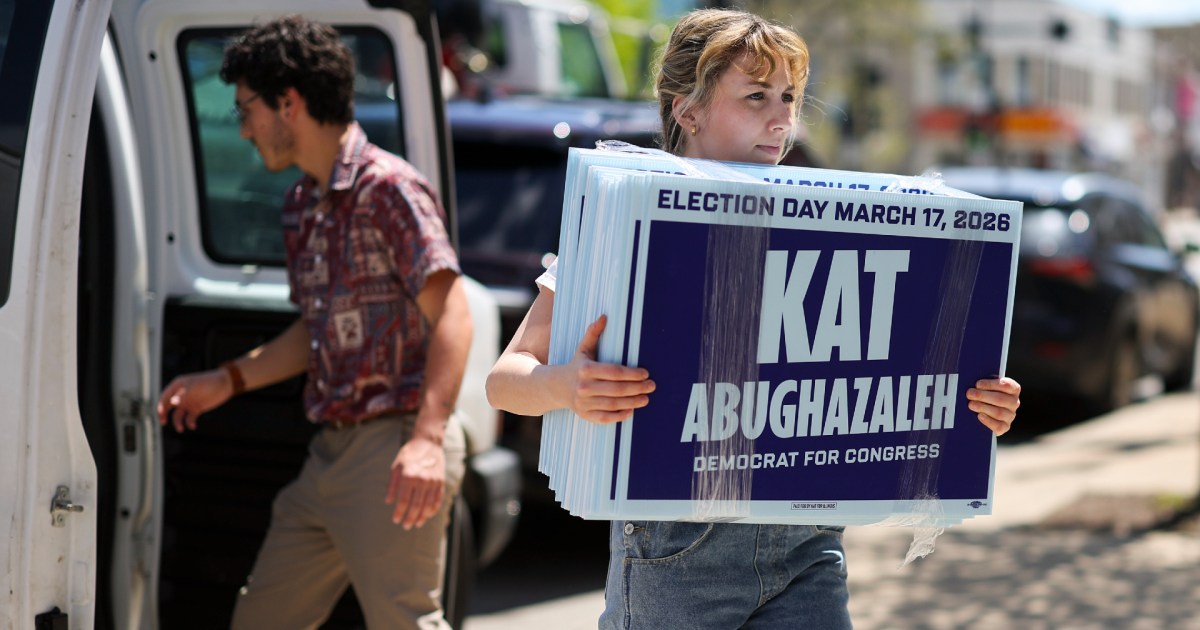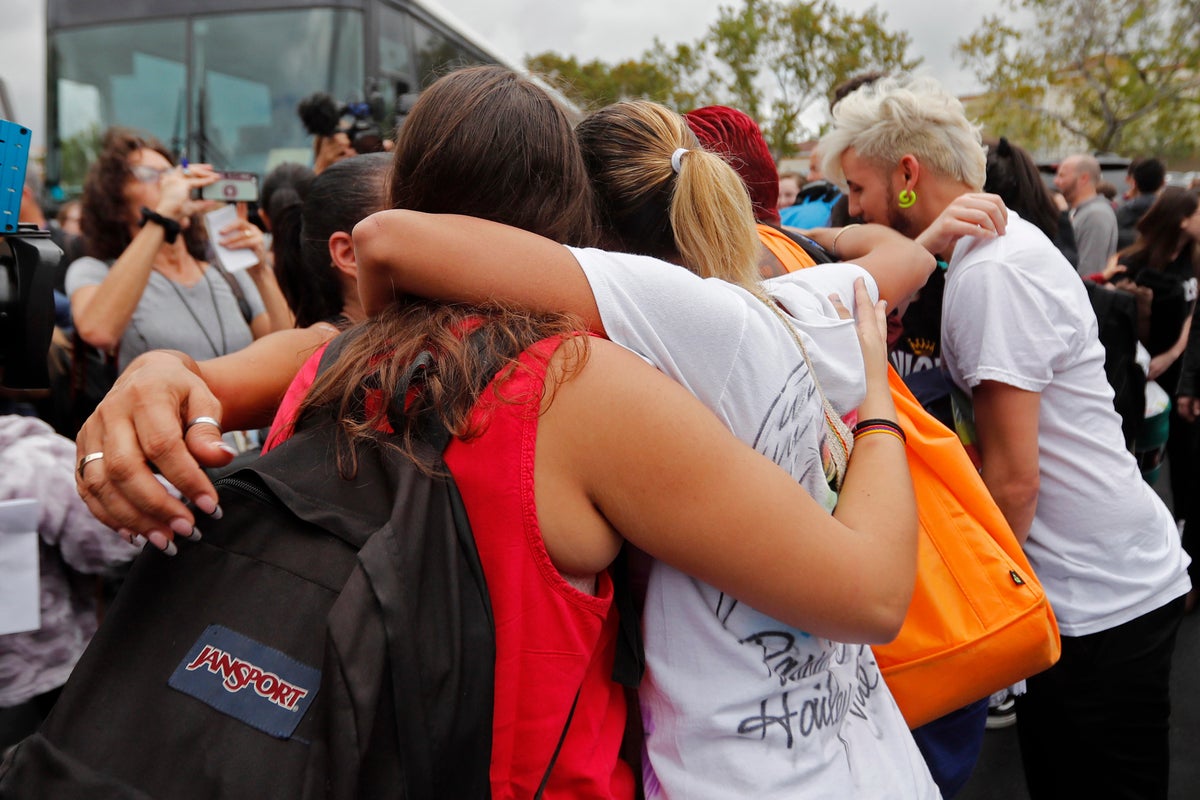If you had to describe the last decade or so of political life in America, the list would likely include the following: The Black Lives Matter movement. The death of George Floyd. America’s first Black president. The rise of the MAGA movement. The election and reelection of Donald Trump. A resurgence of white nationalism. An erasure of Black history.
America in these last 10 years has experienced generational political upheaval, clashes over race and identity, and a battle over the very direction of the country itself. Few writers have charted these wild swings better than staff writer for The New Yorker and Columbia Journalism School Dean Jelani Cobb. And for Cobb, it all started when he was asked to write about an incident that was just beginning to make national news: the death of Trayvon Martin, an unarmed Black 17-year-old in Florida.
Subscribe to Mother Jones podcasts on Apple Podcasts or your favorite podcast app.
“At the time, I thought of Trayvon as this particularly resonant metaphor. But I didn’t understand that he was actually the start of something much bigger,” Cobb says. “I’m still kind of hearing the echoes of that moment.”
Cobb recently released Three or More Is a Riot: Notes on How We Got Here: 2012–2025, a collection of essays from more than a decade at The New Yorker, that all begin with that moment of national reckoning over Martin’s death. On this week’s episode, Cobb looks back at how the Trayvon Martin incident shaped the coming decade, reexamines the Black Lives Matter movement and President Obama’s legacy in the age of Donald Trump, and shares what he tells his journalism students at a time when the media is under attack.
Find More To The Story on Apple Podcasts, Spotify, iHeartRadio, Pandora, or your favorite podcast app, and don’t forget to subscribe.
This following interview was edited for length and clarity. More To The Story transcripts are produced by a third-party transcription service and may contain errors.
Al Letson: Tell me about that time when you started writing and reporting on Trayvon’s death and how it’s evolved into where it is today.
Jelani Cobb: That was a really striking moment, I think, partly because of the contrast. There was a Black president. We had seen circumstances like Trayvon’s, decades and centuries. We had never seen that in the context of it being an African-American president. The first thing that I ever wrote for The New Yorker was a piece called Trayvon Martin and the Parameters of Hope, and it was about exactly that contradiction. The fact that we could be represented in the highest office in the land, that we could look at Barack Obama and see in him a barometer of our progress, even though lots of things people agree or disagree with about him politically, but the mere fact that he could exist was a barometer of what had been achieved. And at the same time, we had this reminder of the way in which the judicial system can deliver these perverse outcomes, especially when there are cases that are refracted through the lens of race.
At the time I thought of Trayvon as this particularly resonant metaphor, but I didn’t understand that he was actually the start of something much bigger, because Black Lives Matter is an outgrowth. The phrase, the framing, that language, Black Lives Matter, came out of the aftermath of the verdict that exonerated George Zimmerman, who is the man who killed Trayvon Martin. And in a weird kind of bizarro world response, Trayvon Martin’s death was also cited as the impetus for Dylann Roof, who three years later killed nine people in the basement of the Emmanuel AME Church in Charleston, South Carolina, and he said he had been radicalized by the Trayvon Martin case.
And it went from there. Really both of those dynamics, those twin dynamics of this resurgence of white nationalism and this kind of volatile Christian nationalism and this very dynamic resonant movement for black equality or for racial equality, and almost the kind of crash the path that those two were put on in that moment.
Yeah. Three or More Is a Riot, is a collection of your past essays. After you were finished putting all this together, I’m just curious. What did you learn about the things that you had written, and also what did you learn about yourself? Because I think when I look back at old writing that I did I see myself in where I was, versus where I am today.
Yeah, I think writing is either intentionally or unintentionally autobiographical. You’re either putting it out there and saying, this is what I think at this moment about these things, or time does that for you. If you come back, you can go, oh wow, I was really naive about this, or I really saw this very clearly in the moment for what it was.
When I was combing back through these pieces, one conversation came to me, which was a discussion I had with my then editor, Amy Davidson Sorkin at The New Yorker. After I’d filed the first piece on Trayvon Martin, she said, “Why don’t you just stick with the story and see where it goes?” In effect, I’m still doing that. I’m still kind of hearing the echoes of that moment.
There are 59 pieces in this collection, some of them short, some of them lengthy, but in looking at each of these pieces, I started to plot out a path. And that’s why the subtitle for the book is Notes on How We Got Here: 2012 to 2025, because I started to plot out a path seeing the rise of Trumpism and the MAGA movement, seeing the backlash to Barack Obama, the mass shootings, the racialized mass shootings in El Paso and Pittsburgh and Buffalo, all of which I had written about, and the way that these things were culminating into a national political mood.
Yeah, yeah. I’m curious. I can remember when Obama was elected, I was volunteer/working with young black men, or boys at the time. Now they’re all grown up. But I was mentoring a group of black kids that were in a very poor neighborhood, and they were struggling to get by. The parents were. A lot of them had single parents, not for the reasons that most people prescribe. A lot of them had single parents because their other parent had passed away, and they were just trying to get by.
I remember when Barack Obama was elected, I felt like this sense of hope, and also a little bit of relief because I’d been telling these boys that they could be anything they wanted to be. And deep down inside, I felt like I had been selling them a lie, but I’d been selling them a lie for a higher purpose, like for them to reach for something bigger. And when Barack Obama got elected, I felt like, okay, I’m not lying anymore. This is a good thing. I felt hopeful. Over his first term, though, what I began to realize with working with these young men is that nothing in their life was changing. Nothing at all. Everything that was changing in their lives happened because of what they were doing, but nothing changed when it came to national politics or what the president can do.
I guess the question I have in saying all of that is how do you look back at the Obama years? Do you feel like in this weird way that it was a dream that never was really actualized, or was it a dream that was actualized? Did we see progress through that?
You know what’s interesting, and I hate to be this on the nose about it, but I actually kind of grapple with that question in one of the essays called Barack X. It’s a piece I wrote in the midst of the 2012 election because he was running for reelection, which didn’t have the same sort of resonance because we already knew that a black person could be elected president. We had seen that. And that motivation was different, and it was this question of whether or not people would stay the course, whether people would come out. Incumbency is a powerful advantage in American politics, but there’s also, even at that point, you could see these headwinds forming around Obama. In that piece, I grapple with the question of not only what Obama had done, but I think more substantively what it was possible for him to do in that moment.
It became this question for history I think. It takes 25 years after he’s left office to have a fair vantage point on what he reasonably could have done versus what he actually did. And the reason I say that is substantively, I think a lot of us felt that way, that things weren’t changing, that we were still grappling with the same sort of microaggressions at work, sometimes even worse. We were dealing with police who were behaving in a way that they were, and at the same time, this is the President of the United States who was called a liar while addressing Congress. This is a person who got stopped and frisked essentially, and had to show his birth certificate to prove that he was eligible to vote in the election he actually won. Not the question of whether he was eligible to be president, it was a question of whether or not it was even legal for him to vote in that election if he wasn’t a citizen.
And so when you stacked all of those things up, and you saw the entrenched opposition that had determined that their number one objective from the time that he was elected was for him to be a one-term president. That’s what Mitch McConnell said. That’s what the other kind of aligned forces in the Republican Party. Where the standard thing is, even if it’s just boilerplate, even if it’s just kind of standard political speech that they say, well, we’ll work with the president where we can, but we’ll stand by our principles, blah, blah, blah, blah, blah. That’s not what they said.
Yeah, normally they’re just like, well, we’re going to work for the good of the American people, and if the president lines up with us, we will be happy to work for him.
Yes, yes. Exactly.
Mitch was very clear.
That’s not what they said about him. And so balancing those two things, figuring out what the landscape of possibilities actually was, and then inside of that, what he achieved or failed to achieve relative to those things.
So when Barack Obama was running for election, I just didn’t believe it was going to happen, until the day it happened. I was in disbelief. I was shocked. On the flip side, all the black lash that we have gotten ever since his presidency ended, and during his presidency really, all the black lash, I was completely, yeah, that’s par for course with America. It’s so unsurprising to me. You can just look back to Reconstruction and see how all that ended to kind of understand where we’re going.
One of the things that Obama did in his political rhetoric period, was that he frequently denounced cynicism. He didn’t talk about racism very much, but he talked about cynicism a lot. And in fact, he often used the word cynicism in place of the word racism, that someone would do something racist, and he would say it was cynical. And it made sense because as the black president, you can’t be the person who’s calling out racism left and right. It just won’t work to your advantage politically. At the same time as his presidency unfolded, the people who he had called cynical, or at least people who were skeptical or maybe even pessimistic, began to have an increasingly accurate diagnosis of what he was up against.
I like to think that before he was elected, Barack Obama knew something that nobody else in black America knew, which was namely that the country was willing and capable of electing a black man to the presidency of the United States. But after he was elected, I think black America knew something that at times it seemed like Obama did not, which is that people will stop at no ends to make sure that you are not successful.
My father grew up in Jim Crow, Georgia, and he had the standard horror stories that everyone who grew up in Jim Crow had. And the message that he would give me is never be surprised by what people are willing to do to stop you as a black person, especially if you make them feel insecure about themselves. And it seemed like as the Obama presidency unfolded, that sentiment that he had dismissed as cynical became more and more relevant as the backlash intensified, as he was denied the unprecedented denial of a Supreme Court appointment, which was astounding. The tide of threats against his life that the Secret Service was dealing with. All of those things, when you pile all up together, it begins to look like a very familiar pattern in the history of this country, especially as it relates to race.
I was definitely taught those same lessons. Definitely. My father is a Baptist preacher who loves everybody, but was also very clear. You’ve got to work harder, you’ve got to be better, and don’t be surprised. And I feel like that is the thing that has stuck with me all these years.
It’s interesting, the right-wing political commentator, Megyn Kelly, recently said that basically that everything was good, and then Obama came and kind of broke us.
Oh, yeah.
And I just thought it was such a telling statement.
Well, it’s a very cynical statement to borrow a line from Obama.
Yes, it was a very cynical statement, and kind of telling on herself in the sense of, I think that that’s where the backlash is coming from, the idea that we had this black man as president, and now we have to get this country right.
Yeah. Well, the other thing about it, there was a kind of asymmetry from the beginning. There was this congratulation that was issued to white America or the minority of white America that voted for a black presidential candidate. And on the basis of this, people ran out and began saying, which is just an astounding statement to even think about now, they ran out and said, this was a post-racial nation.
Yeah, I remember that.
But the fact that it was, and I would point this out. A minority of white voters in 2008 and in 2012 voted for a presidential candidate who did not share their racial background. In short, a minority of white voters did, but the majority, the overwhelming majority of black voters had been doing since we’ve been allowed to vote. Since we had gotten the franchise in our newly emancipated hands, we had been voting for presidential candidates that did not share our racial backgrounds. No one looked at black people and said, oh, they’re post-racial. They’re willing to look past a candidate’s skin color to vote for someone. In fact, it was more difficult for African-American presidential candidates to get support from black voters than it was for white candidates to do so, which is the real kind of hidden story of Barack Obama’s success.
One of the lesser kind of noted things was that Barack Obama won the South Carolina primary with an overwhelmingly black electorate, but he won it after Iowa, after he had demonstrated that he had appealed to white voters. And I’ve long maintained that if those two primaries had been reversed, had they had been South Carolina first and then Iowa, he might’ve still won Iowa, but it is doubtful that he would’ve won South Carolina.
So the Black Lives Matter movement, it was like the rebirth of the civil rights movement, so to speak. But right now, we’re living in an era where Black Lives Matter signs are literally being demolished and black history… I’m a Floridian. I’m talking to you from Florida right now, and I could tell you the assault on black history specifically in schools is real.
Do you feel like Black Lives Matter as a movement failed? Do you see us coming back from this as a country, like being able to really talk about the history of this country, because it feels like we’re just running away from it now?
There’s an essay that I’m going to write about this, about what black history really has been, and what Black History Month really has been, and why Dr. Carter G. Woodson created what he then called Negro History Week in 1926 and became Black History Month in 1976 to mark the 50th anniversary. But they had very clear objectives, and these were explicitly political objectives that they were trying to create a landscape in which people would spend a dedicated amount of time studying this history for clues about how to navigate through the present. That first generation of black historians went through all manner of hell to produce the books, to produce the scholarly articles, to produce the speeches, to create a body of knowledge that redeemed the humanity of black people, and specifically made a case against Jim Crow, against disenfranchisement. They understood that history was a battleground, and that people were writing a history that would justify the politics of the present.
And so when you saw that black people had been written out of the history of the country, that slavery had been written out of the history of the Civil War, that the violent way in which people were eliminated from civic contention, had been whitewashed and airbrushed, and that what you saw in the day-to-day was segregation, poverty, exploitation, the denial of the franchise, the denial of the hard-won constitutional rights, there’s a reason, for instance, that the first two black people to get PhDs from Harvard University, and those two were W.E.B Du Bois and Carter G. Woodson, they both got their doctorates in history because they were trying to create a narrative that would counterbalance what was being done.
When I look at the circumstances that this field came into existence under, I’m less concerned about what’s happening now. I should say that what’s happening now is bad, but I think that we have a body of scholars. Now there are people who every spring a new crop of PhDs in this field is being minted, and people are promulgating this history in all kinds of ways and so on. And so I think this is a battle that has to be contested and has to be fought and ultimately has to be won, but I don’t lament about the resources and our ability to tell these stories.
You’re on faculty at Columbia University and the last couple of years it’s been center stage not only for protests-
Yeah, complicated.
Yeah, complicated. How do you manage that in the classroom?
I have to say that as a journalism school, there’s a very easy translation because the question is always, how do we cover this? What do we need to think about? What are the questions that need to be asked at this moment? After October 7th, when the wave of demonstrations and counter-demonstrations and the kind of solemn memorials on either side, I said to my students repeatedly, if I said it once, I said it 20 times, which is that you lean on your protocols at this point. You question yourself. You question your framing. You question how you approach this story. What is the question the person who disagrees with how you feel? What is the question that person would ask? And is that a fair question? And you relentlessly interrogate. And that’s also the job of your editors to relentlessly interrogate where you’re coming from on this story.
I kind of jokingly said to them, I said, “We have told you from the minute you got here to go out and find the story, and we forgot to tell you about the times that the story finds you.”
Yeah. How did you feel about Columbia’s administration’s response to the Trump threats?
The only thing I can say is that it was a very complicated situation. As a principal in life, I have generally been committed to not grading people harshly on tests that they never should have been required to take in the first place, if that makes sense.
Yeah.
There was a lot that I thought was the right thing. A lot of the decisions I thought were the right decisions to make. There were other decisions that I disagreed with, some that I disagreed with strongly. But the fundamental thing was always framed in the fact that the federal government should not be attacking a university. That was what my overarching kind of statement was. But I will say that also the journalism school has tried to navigate this while maintaining fidelity to our principles and our support of free speech and support of the free press.
Yeah. I think there’s a lot of hand-wringing among journalists right now. Fact-based reporting is being drowned out by misinformation and disinformation. What do you tell your students? How do you teach them in a time when journalism itself is under such threat?
Well, the thing that we teach is that this is indicative of how important journalism is. Powerful people don’t waste their time attacking things that are not important. And so we’re able to establish kind of narratives. And granted, we’ve lost a few rounds in this fight, that people not only have less trust in us, but they have more trust in people who are sometimes outright charlatans, or people who are demagogues, and that is a real kind of difficult circumstance.
But I also think that it’s reminiscent of the reasons that Joseph Pulitzer founded this school in the first place. The school was established in 1912 with a bequest from Joseph Pulitzer’s estate. Pulitzer understood at the time journalism was a very disreputable undertaking, and he had this vision of it being professionalized, of journalists adhering rigorously to a standard of ethics and thereby winning the trust of the public. And that was part of the reason that people actually did win the trust of the public over the course of the 20th century. Now we’ve had technologies and cultural developments and some other changes that have sent those numbers in the opposite direction, which I also will say this is not isolated. People distrust government; they distrust corporations; they distrust the presidency; they distrust all of these institutions that used to have a much higher degree of public trust.
My approach to this has been we should not ask the public to trust us. We should not anticipate ever regaining the level of trust we had once enjoyed. But I think that the alternative is that we now just show our work to the greatest extent possible. Sometimes we can’t because we have sources who can only give us information anonymously, but we should walk right up to the line of everything that we can divulge so that we say, don’t trust us. Read for yourself what we did. If you wanted to, you could follow up Freedom of Information Act and get these same documents that we are citing in this reporting. Or we should try to narrow the gap between what we’re saying and the degree to which people have to simply take us at our word.
America has obviously changed over the last 10 years. How have you changed?
Oh, what’s really interesting is that, and this is the kind of unintentional memoir part of it, I think that I’m probably more restrained as a writer now than I was 10 years ago. Keeping my eyebrow raised and kind of like, hmm, where’s this going? I try to be a little bit more patient, and to see that what the thing appears to be may not be the thing that it is. And at the same time, I’m probably more skeptical than I was 10 years ago. I haven’t given up on the idea of there being victory, of it being a better tomorrow, but I also think that it will exact a hell of a cost for us to get to that place.














